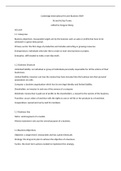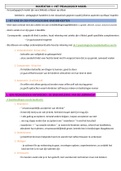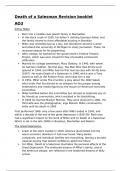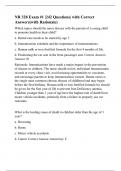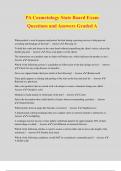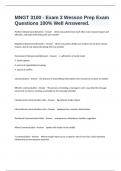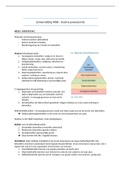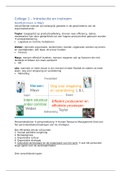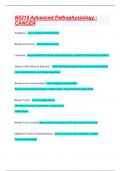Summary
Summary Cambridge International Business 9609 Key Terms & Definitions
- Institution
- CIE
This is an all-in-one summary key terms and definitions of the new CAIE A-Level business syllabus. The key terms are written in the order of chapters, which is suitable for revising before an exam. If you have any questions, please feel free to contact me.
[Show more]
